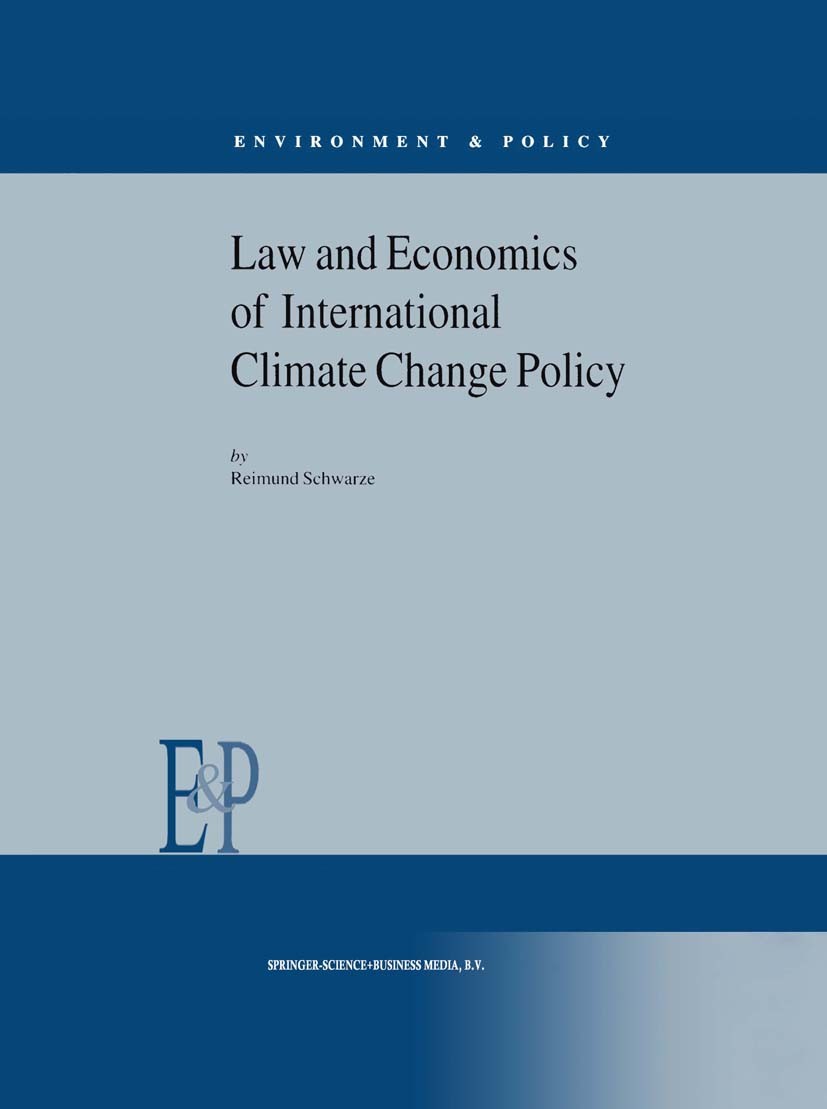| 书目名称 | Law and Economics of International Climate Change Policy | | 编辑 | Reimund Schwarze | | 视频video | http://file.papertrans.cn/583/582017/582017.mp4 | | 丛书名称 | Environment & Policy | | 图书封面 |  | | 描述 | International climate change policy can be broadly divided into two periods: A first period, where a broad consensus was reached to tackle the risk of global warming in a coordinated global effort, and a second period, where this consensus was finally framed into a concrete policy. The first period started at the "Earth Summit" of Rio de Janeiro in 1992, where the United Nations Framework Convention on Climate Change (UNFCCC) was opened for signature. The UNFCCC was subsequently signed and ratified by 174 countries, making it one of the most accepted international rd treaties ever. The second period was initiated at the 3 Conference of the Parties (COP3) to the UNFCCC in Kyoto in 1997, which produced the Kyoto Protocol (KP). Till now, eighty-four countries have signed the Kyoto Protocol, but only twelve ratified it. A major reason for this slow ratification is that most operational details of the Kyoto Protocol were not decided in Kyoto but deferred to following conferences. This deferral of the details, while probably appropriate to initially reach an agreement, is a major stepping stone for a speedy ratification of the protocol. National policy makers and their constituencies, wh | | 出版日期 | Book 2001 | | 关键词 | Climate Change; Conservation; Kyoto Protocol; bioenergy; climate change policy; development; forest | | 版次 | 1 | | doi | https://doi.org/10.1007/978-94-017-2047-2 | | isbn_softcover | 978-90-481-5647-4 | | isbn_ebook | 978-94-017-2047-2Series ISSN 1383-5130 Series E-ISSN 2215-0110 | | issn_series | 1383-5130 | | copyright | Springer Science+Business Media Dordrecht 2001 |
The information of publication is updating

|
|
 |Archiver|手机版|小黑屋|
派博传思国际
( 京公网安备110108008328)
GMT+8, 2026-2-8 20:49
|Archiver|手机版|小黑屋|
派博传思国际
( 京公网安备110108008328)
GMT+8, 2026-2-8 20:49


